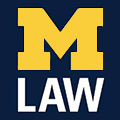Free Consultation: (734) 221-0077Tap to Call This Lawyer

Thomas. R. Morris
Morris & Morris Attorneys, P.L.L.C.
Badges
Claimed Lawyer ProfileQ&A
Biography
B.A., International Relations, James Madison College, Michigan State University. J.D., University of Michigan Law School, 1986. Practice concentrated in bankruptcy, commercial law, business law, workouts, real estate and complex situations.
Practice Areas
- Appeals & Appellate
- Civil Appeals, Federal Appeals
- Bankruptcy
- Chapter 11 Bankruptcy, Chapter 13 Bankruptcy, Chapter 7 Bankruptcy, Debt Relief
- Business Law
- Business Contracts, Business Dissolution, Business Finance, Business Formation, Business Litigation, Franchising, Mergers & Acquisitions, Partnership & Shareholder Disputes
- Collections
- Foreclosure Defense
- International Law
- Human Rights, Imports & Exports
Fees
-
Free Consultation
The depth and duration of the free consultation depends upon the nature and scope of the potential engagement. -
Rates, Retainers and Additional Information
Standard hourly rate is $350.
Jurisdictions Admitted to Practice
- Michigan
-

- 6th Circuit
-

Languages
- French: Spoken, Written
Professional Experience
- member
- Morris & Morris Attorneys, P.L.L.C.
- - Current
- member
- Silverman & Morris, P.L.L.C.
- -
- shareholder
- Shefferly, Silverman & Morris
- -
- attorney
- Schlussel, Lifton
- -
Education
- University of Michigan Law School
- J.D.
- -
-

- Michigan State University
- B.A. | international relations
- -
- James Madison College
-

Awards
- listing 2008 to present
- Superlawyers
Professional Associations
- Creditor/Debtors Rights Committee, Business Law Section, State Bar of Michigan
- member
- - Current
-

- American Bankruptcy Institute
- member
- - Current
- Activities: Occasional lecturer.
-

- State Bar of Michigan, Business Law Section, Creditor/Debtor Rights Committee
- member
- - Current
-

- Business Law Section Council
- member
- -
-

Publications
Articles & Publications
- The Michigan Exemption Initiative
- Michigan Business Law Journal
- The History and Futrure of Michigan Debtor Exemptions
- Michigan Business Law Journal
- Representing Small Business Debtors in Bankruptcy
- ICLE
- The Discharge of "Trustee" Debts: Defining the Term "Fiduciary Capacity" under Bankruptcy Code section 523(a)(4)
- Michigan Business Law Journal
- Judgment Liens Against Real Property: H.B. 4941 Proposes Major Changes
- Michigan Real Property Review
Speaking Engagements
- Individual Chapter 11 Reorganizations, ABI Central States conference, Traverse City, Michigan
- American Bankruptcy Institute
- moderator and speaker
Websites & Blogs
- Website
- Website
Legal Answers
298 Questions Answered
- Q. Is it legal for dental office to charge me for my mom's bill under family plan?
- A: The question is whether you agreed to pay for your mother's services. If the terms of the "family plan" call for you to be liable, then you are ostensibly liable. If they are billing you for services rendered to another person and they won't discuss her treatment with you, perhaps due to HIPAA, which is patient confidentiality law, this is problematic and may constitute a violation of the Michigan Consumer Protection Act. It may, however, be difficult to get them to refund money to you, and a lawsuit for a refund may be uneconomical.
- Q. How do I evict a tenant in Novi, Michigan after lease expiration and non-payment?
- A: Evictions are handled by the state district courts. Therefore, the 52-1 District Court on Grand River Avenue in Novi would presumably have jurisdiction. You need to send a thirty-day notice to quit (or a seven-day notice to pay rent, depending upon your strategy, then file the complaint if necessary. The court has further instructions on its website. There are a number of local attorneys who handle evictions. The law can be complicated, so I cannot in this format provide a complete course on evictions.
- Q. Can an unrecorded HELOC become a lien after property sale in Michigan?
- A: The short answer is no. A purchaser without knowledge of the unrecorded interest in the property will acquire title that is superior to the mortgage, i.e. not subject to the mortgage. However, the lender may try to find a way to change this result by questioning whether the purchaser took title in good faith and should have inquired as to the existence of the mortgage. The more complete answer is possibly.
Annotations
- Miller v. Wylie
- US Court of Appeals for the Sixth Circuit
Contact & Map

